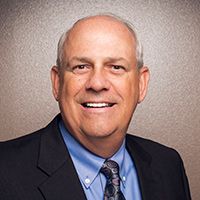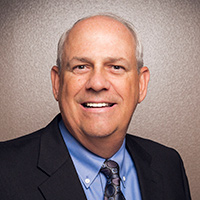8 Tax-Planning Moves to Make Before 2016 Ends
Talk to your accountant about these issues to make sure you keep more of your hard-earned money.

Profit and prosper with the best of Kiplinger's advice on investing, taxes, retirement, personal finance and much more. Delivered daily. Enter your email in the box and click Sign Me Up.
You are now subscribed
Your newsletter sign-up was successful
Want to add more newsletters?
With the holidays quickly approaching—and the chaos from numerous parties, shopping, wrapping and feasting—your tax return is probably far from being a top priority.
Indeed, a lot of people wait until February or March—even early April, when their return is almost due—before they start thinking about preparing their paperwork and meeting with their certified public accountant.
Despite the impending holiday season, this may actually be the best time of year to see a tax professional who can help you with some of the tax-planning strategies you might not think about… or even know about.
From just $107.88 $24.99 for Kiplinger Personal Finance
Become a smarter, better informed investor. Subscribe from just $107.88 $24.99, plus get up to 4 Special Issues

Sign up for Kiplinger’s Free Newsletters
Profit and prosper with the best of expert advice on investing, taxes, retirement, personal finance and more - straight to your e-mail.
Profit and prosper with the best of expert advice - straight to your e-mail.
Many of the strategies that may cut down on what you owe should be put in place before the end of the year. If you wait until your W-2s and other tax statements start arriving in late January, you might miss out on the chance to keep more of your hard-earned money.
Here's a list of end-of-year topics that you may want to talk about with your CPA.
1. Should you itemize or go with a standard deduction on your return?
When you meet with your tax professional make sure you're able to show how much you've paid in home mortgage interest, state and local income taxes or sales tax (but not both), real estate and personal property taxes, and unreimbursed employee business expenses. Also consider any exemptions that might apply that you may also want to discuss. Ask your tax professional what those itemized deductions will mean to your bottom line versus taking your standard deduction.
2. Consider whether you could be paying taxes on money you're not using.
If you have dividends and interest on non-qualified accounts that you're not currently taking, this money could be taxable even if you just reinvested it. Often times, to add insult to injury, this can put you in a higher tax bracket, and you end up paying even more in taxes than you would otherwise.
3. Think about maxing out the employer match on your company-sponsored retirement plan and get as much of this free money as you can.
A lot of money is left on the table because employees aren't paying attention to their qualified plans and the maximum match amount. If you and your accountant think you can manage it, adjust your contribution for the rest of the year and take advantage of this benefit.
4. Consider the various ways you can give charitable contributions. It's a win-win!
Talk to your CPA about the rules regarding cash and non-cash donations and how they apply to your giving strategy.
There also are ways to fund gifts with appreciated securities. Or, if you're over the age of 70½ and dealing with required minimum distributions (RMDs), talk to your CPA or your financial adviser about directing an IRA withdrawal straight to an IRS-approved charity. Think of these strategies as arranging for the government to participate in your charitable giving.
5. Look at whether a Roth conversion makes sense for you. And if you already have a Roth, can you contribute more?
Talk to your tax professional about what tax bracket you'll end up in after your deductions. For some people, converting from a taxed-forever IRA makes sense. (But be aware that this is not a one-size-fits-all approach.)
6. Think about your medical deductions.
Ask your tax adviser if you qualify to deduct out-of-pocket medical expenses. If you're close to that mark, see if there are any procedures or appointments that still could be done in 2016 to get you there, and pay any outstanding hospital or doctor bills now. (If you don't think you've spent enough to hit the threshold for this deduction, ask your CPA if you can include medical costs for any qualifying parents and children. It's important to talk to your CPA about IRS rules and limits.)
7. If you're a small business owner, think about buying new equipment.
Some tax professionals say one of the juiciest but most overlooked deductions is Section 179, which allows small business owners (including people running home-based businesses, consulting practices, etc.) to deduct the entire cost of new machinery and equipment in the year of purchase. Ask your tax professional to take a look at your projected income for next year versus this year and get advice on timing your purchases accordingly.
8. If you think 2017 is your year to retire—plan now!
One to-do-list item not directly related to tax planning: The end of the year is a great time to reflect on your goals and your plan for the next year. If you've set your sights on 2017 as the year for you to retire, start interviewing financial advisers! Retirement is an event that could last 10, 20, 30 or even 40 years, and it's never too early to plan. Be ready to shift your thinking from accumulation to preservation and distribution. In retirement, your success may boil down to having a strong income plan in place!
Jeff Dixson is the founder, president and CEO of Northwest Financial and Tax Solutions Inc., www.nwfts.net and is an Investment Adviser Representative and Insurance Professional. He hosts a weekly radio show, "The Jeff Dixson Show: The Retirement Coach," and is the author of "Winning the Retirement Game."
Jeff Dixson offers securities and advisory services through Madison Avenue Securities, LLC (MAS), member FINRA & SIPC, a registered investment advisor. MAS and NW Financial & Tax Solutions are not affiliated companies.
Northwest Financial and Tax Solutions Inc. and its agents and representatives are not able to provide tax or legal advice. The information in this material is not intended as tax or legal advice. Please consult legal or tax professionals for specific information regarding your individual situation.
Kim Franke-Folstad contributed to this article.
Profit and prosper with the best of Kiplinger's advice on investing, taxes, retirement, personal finance and much more. Delivered daily. Enter your email in the box and click Sign Me Up.

Jeff Dixson is president and CEO at Northwest Financial and Tax Solutions Inc. and is an Investment Adviser Representative and insurance professional. He hosts a weekly radio show, "The Jeff Dixson Show: The Retirement Coach," and is the author of "Winning the Retirement Game."
-
 Why Some Michigan Tax Refunds Are Taking Longer Than Usual This Year
Why Some Michigan Tax Refunds Are Taking Longer Than Usual This YearState Taxes If your Michigan tax refund hasn’t arrived, you’re not alone. Here’s what "pending manual review" means and how to verify your identity if needed.
-
 If You'd Put $1,000 Into Caterpillar Stock 20 Years Ago, Here's What You'd Have Today
If You'd Put $1,000 Into Caterpillar Stock 20 Years Ago, Here's What You'd Have TodayCaterpillar stock has been a remarkably resilient market beater for a very long time.
-
 Good Stock Picking Gives This Primecap Odyssey Fund a Lift
Good Stock Picking Gives This Primecap Odyssey Fund a LiftOutsize exposure to an outperforming tech stock and a pair of drugmakers have boosted recent returns for the Primecap Odyssey Growth Fund.
-
 A Newly Retired Couple With a Portfolio Full of Winners Faced a $50,000 Tax Bill: This Is the Strategy That Helped Save Them
A Newly Retired Couple With a Portfolio Full of Winners Faced a $50,000 Tax Bill: This Is the Strategy That Helped Save ThemLarge unrealized capital gains can create a serious tax headache for retirees with a successful portfolio. A tax-aware long-short strategy can help.
-
 I'm a Wealth Adviser: This Strategy Can Slash Your Taxes on Large Stock or Property Sales
I'm a Wealth Adviser: This Strategy Can Slash Your Taxes on Large Stock or Property SalesSelling a major asset can result in huge capital gains taxes, but combining direct indexing with tax-loss harvesting can significantly reduce your tax bill.
-
 I'm a Financial Planner: This Is How You Can Legally Divorce the IRS for the Rest of Your Life
I'm a Financial Planner: This Is How You Can Legally Divorce the IRS for the Rest of Your LifeWith some careful planning focused on the standard deduction, retirees who have large sums in tax-deferred accounts can avoid unpleasant tax bills and even part ways with the IRS for good.
-
 9 Ways the Wealthy Waste Thousands in Taxes: A Checklist for What Not to Miss
9 Ways the Wealthy Waste Thousands in Taxes: A Checklist for What Not to MissThe tax code contains plenty of legitimate ways for the wealthy and business owners to cut taxes. Use this checklist to minimize taxes and stay compliant.
-
 I'm an Opportunity Zone Pro: This Is How to Deliver Roth-Like Tax-Free Growth (Without Contribution Limits)
I'm an Opportunity Zone Pro: This Is How to Deliver Roth-Like Tax-Free Growth (Without Contribution Limits)Investors who combine Roth IRAs, the gold standard of tax-free savings, with qualified opportunity funds could enjoy decades of tax-free growth.
-
 I'm a Real Estate Investing Pro: This Is How to Use 1031 Exchanges to Scale Up Your Real Estate Empire
I'm a Real Estate Investing Pro: This Is How to Use 1031 Exchanges to Scale Up Your Real Estate EmpireSmall rental properties can be excellent investments, but you can use 1031 exchanges to transition to commercial real estate for bigger wealth-building.
-
 4 Pro Tips for Successfully Scaling the Medicare Mountain
4 Pro Tips for Successfully Scaling the Medicare MountainAttempting to conquer Medicare without a plan is risky. The safest route requires a thorough understanding of your options and never leaves decisions to chance.
-
 For More Flexible Giving, Consider Combining a Charitable Remainder Trust With a Donor-Advised Fund
For More Flexible Giving, Consider Combining a Charitable Remainder Trust With a Donor-Advised FundIf a charitable remainder trust puts too many constraints on your family's charitable giving, consider combining it with a donor-advised fund for more control.